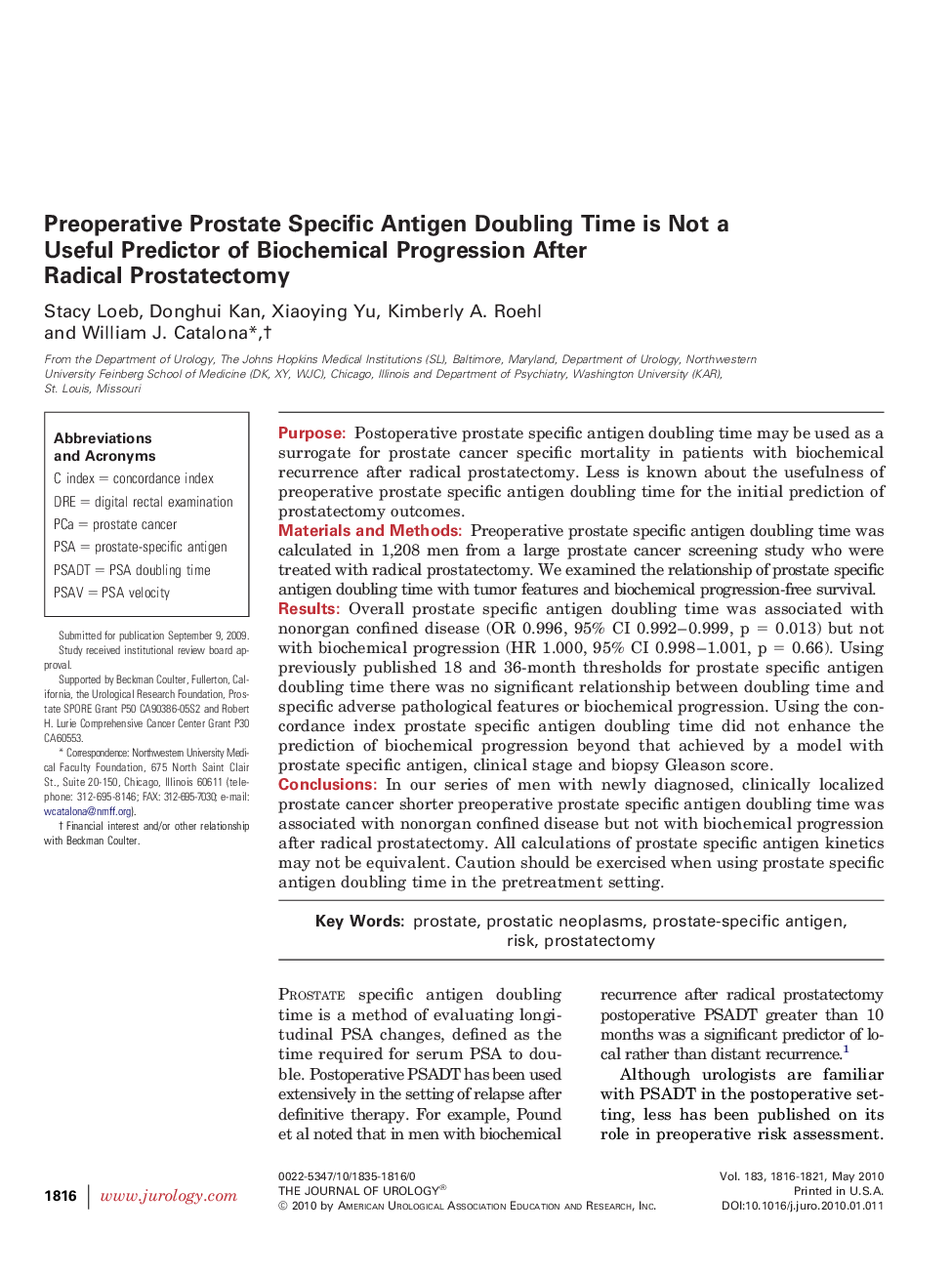| Article ID | Journal | Published Year | Pages | File Type |
|---|---|---|---|---|
| 3866505 | The Journal of Urology | 2010 | 6 Pages |
PurposePostoperative prostate specific antigen doubling time may be used as a surrogate for prostate cancer specific mortality in patients with biochemical recurrence after radical prostatectomy. Less is known about the usefulness of preoperative prostate specific antigen doubling time for the initial prediction of prostatectomy outcomes.Materials and MethodsPreoperative prostate specific antigen doubling time was calculated in 1,208 men from a large prostate cancer screening study who were treated with radical prostatectomy. We examined the relationship of prostate specific antigen doubling time with tumor features and biochemical progression-free survival.ResultsOverall prostate specific antigen doubling time was associated with nonorgan confined disease (OR 0.996, 95% CI 0.992–0.999, p = 0.013) but not with biochemical progression (HR 1.000, 95% CI 0.998–1.001, p = 0.66). Using previously published 18 and 36-month thresholds for prostate specific antigen doubling time there was no significant relationship between doubling time and specific adverse pathological features or biochemical progression. Using the concordance index prostate specific antigen doubling time did not enhance the prediction of biochemical progression beyond that achieved by a model with prostate specific antigen, clinical stage and biopsy Gleason score.ConclusionsIn our series of men with newly diagnosed, clinically localized prostate cancer shorter preoperative prostate specific antigen doubling time was associated with nonorgan confined disease but not with biochemical progression after radical prostatectomy. All calculations of prostate specific antigen kinetics may not be equivalent. Caution should be exercised when using prostate specific antigen doubling time in the pretreatment setting.
